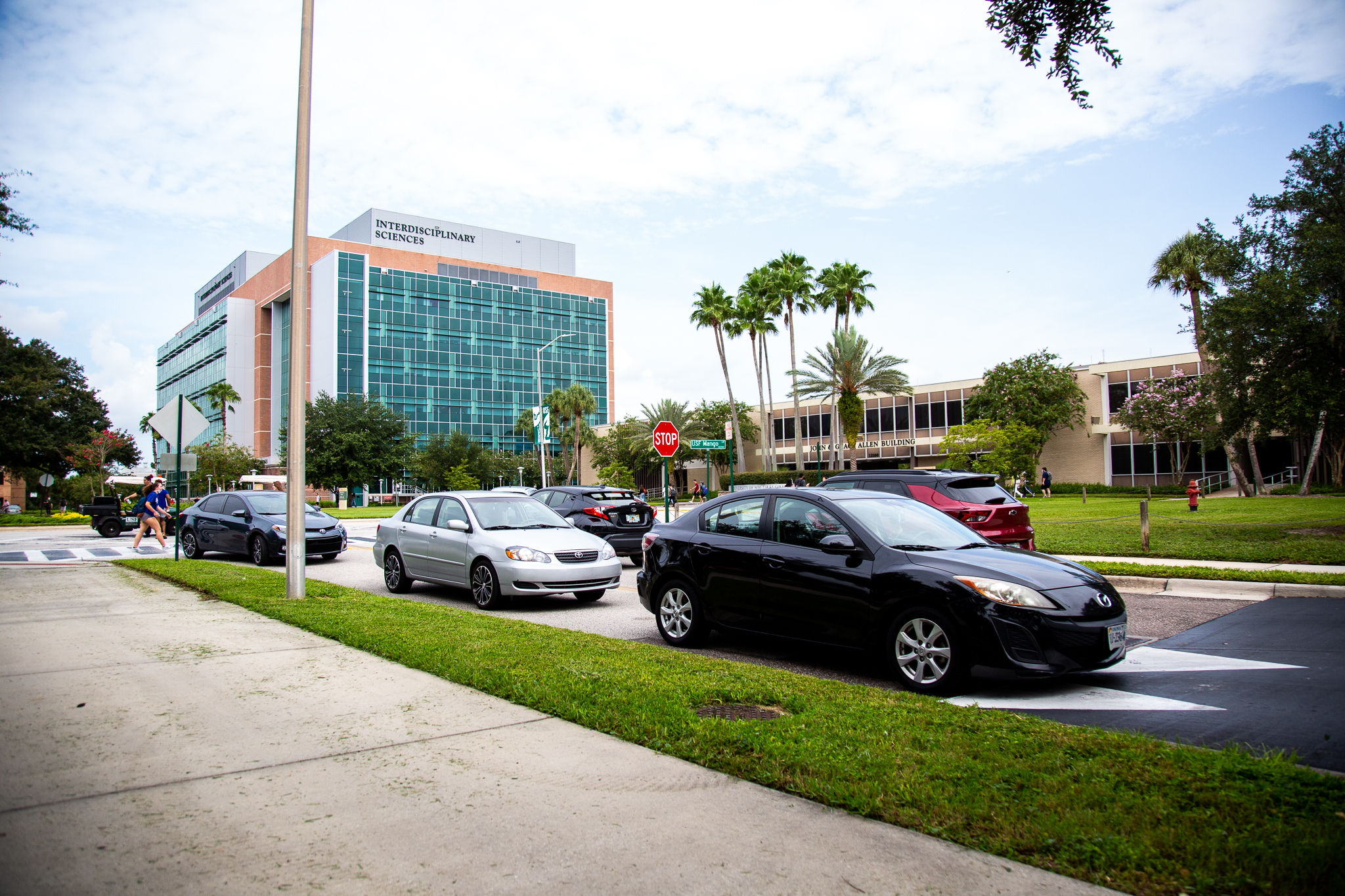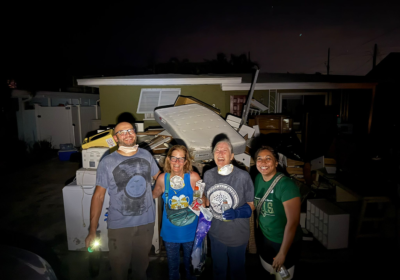Carpool parking program to improve on-campus parking experience

USF Parking and Transportation Services (PATS) recently introduced the USF Carpool Parking Program with the help of the RideFlag app to provide students and staff an easier way of finding carpooling services.
The RideFlag app uses a trademark Vehicle Occupancy Detection (VOD) technology called Multiface, which is able to detect the number of occupants of a vehicle by prompting drivers to verify their carpool before the start of their trip. The driver would be expected to place the faces of everyone in the car on the screen of their phone and the app will then take a “snapshot” to determine if the faces are real people. It will then verify the carpool.
Once a carpool is verified, carpoolers immediately receive a digital Preferential Carpool Parking permit, according to Senior Research Associate for the Center for Urban Transportation Sara Hendricks.
If the RideFlag app works as it is intended, PATS may choose to continue using it as an incentive for students, faculty and staff to carpool to campus. This would free up parking spaces and hopefully reduce some of the traffic congestion on campus.
“The program is currently not permanent. USF is still testing the app to see if it works,” Hendricks said.
The idea was first introduced in 2019, when the Center for Urban Transportation Research suggested the idea to PATS, according to Hendricks.
As of Tuesday, four students have volunteered to test the app and two have shown interest but it is open to all students, staff and faculty.
“[They] are in need of volunteers and if people sign up for the app [they’ll] get a preferred carpool parking space on campus,” she said.
USF students, staff and faculty who are interested in helping to test the functionality of the app can do so by filling out the volunteer’s information through the SurveyMonkey link distributed by Student Government (SG) via email.
After they sign up, they will receive an email from Hendricks with download instructions for that particular beta version of the RideFlag app. Hendricks said only people that sign up get access to the beta version of this app. Students and staff can also directly email Hendricks with the subject heading “RideFlag Carpool Program,” according to Hendricks.
The information needed from volunteers includes their name, mobile phone number, mobile phone type, license plate number associated with a USF parking permit and which state their license is registered in, according to Hendricks.
There are seven locations with preferred parking stalls for RideFlag app testers located throughout campus, according to Hendricks. Illustrated on the app’s website are current carpool lots, which are available to volunteers on a “first come-first served” basis.
Hendricks said the program, which she oversees, is funded by the Florida Department of Transportation, and this particular grant funded project is known as the new North Transportation Alliance.
She hopes more students will sign up to test the app, because if the app works and PATS continues to use it, it could help with existing driving-related issues on campus.
“We’re interested in solving traffic congestion, the parking problem on campus and in reducing greenhouse gas emission, air pollution and noise and safety problems that are as a result of everybody driving their cars all over the place, making a lot of traffic congestion,” she said.
“That is kind of the motivation for this study, to find out if this is an app that can enable us to incentivize carpooling and encourage more people to do so.”






